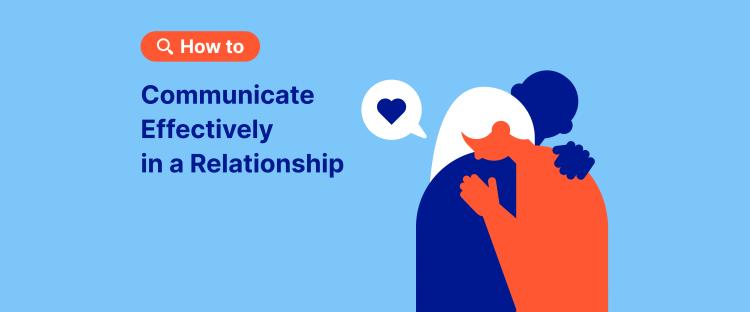Ever notice how your closest friends can sometimes ask for more than you have to give?
Learning how to set boundaries with friends doesn't mean ignoring them or letting go of the friendship. Your emotional well-being should be protected, so the relationship can last. Boundaries are personal limits protecting your time, energy, and values. They show what behaviors are okay and what aren't, which is also vital for your self-care and personal life.
In this article, you'll learn how to set boundaries with friends while keeping mutual respect intact. You'll learn what to say, how to handle pushback, and why protecting yourself helps the friendship.
Understanding boundaries feels overwhelming when you're trying to figure it out alone. Headway gives you 15-minute summaries on communication and protecting your emotional well-being from experts who've studied these matters for years.
📘 Download Headway and start setting boundaries that don't wreck your friendships!
Quick answer: How to set boundaries with friends
Figure out what drains you — Notice when you feel uncomfortable, exhausted, or frustrated with friends. Those feelings show where you need physical boundaries around personal space, time boundaries around when you're available, or limits on what you share. A true friend respects what you need without guilt-tripping you about it.
Say it clearly — Use "I" statements like "I feel stressed when..." or "I need time to..." Be specific about what you need and why it matters to your own lives. Different types of boundaries protect different parts of you — your emotions, energy, space.
Stay consistent — Stick to your boundaries when friends push back. If someone keeps ignoring your limits, explain the consequences and follow through. Consistency shows you mean it. A true friend adjusts instead of testing you repeatedly.
Importance of mutual respect and balance in friendship
Dale Carnegie highlights in ‘How to Win Friends and Influence People in the Digital Age,’
"The people most widely respected within industries, companies, families, and groups of friends are those who are clear in their own viewpoints while remaining compassionate with those whose minds or behavior they would like to influence."
Mutual respect and balance are crucial for nurturing strong and healthy relationships. Honoring each other's boundaries and embracing individuality make both friends feel appreciated and understood. A balanced friendship ensures equal contribution from both sides, preventing feelings of overwhelm or being taken for granted.
This harmony helps the relationship thrive over time, making it stronger. Let's look at some practical ways to help you set clear boundaries with friends without feeling guilty or insecure.
Step-by-step guide to setting boundaries with friends in 2026
Creating boundaries with friends is crucial for building healthy, respectful relationships. Let's walk through simple steps to develop clear personal boundaries that strengthen your friendships.
📘 Want expert advice on how to set boundaries with friends without reading full books? Try Headway for strategies you can use right away.
Step 1: Reflect on your needs and values.
To determine where you need boundaries, start by noticing when you feel uncomfortable, drained, or frustrated in certain situations. Think about times when your personal space, time, or feelings are not respected. Look for patterns in your relationships where you feel overworked or unappreciated. Recognizing these moments can show you where setting limits is needed. Setting boundaries in these areas will help create healthier, more balanced interactions and protect your emotional well-being.

Henry Cloud's 'Boundaries: When To Say Yes, How to Say No' captures the essence of knowing assessment, where you need boundaries:
“After all, the ultimate goal of learning boundaries is to free us up to protect, nurture, and develop the lives God has given us stewardship over. Setting boundaries is mature, proactive, initiative-taking. It's being in control of our lives. Individuals with mature boundaries aren't frantic, in a hurry, or out of control. They have a direction in their lives, a steady moving toward their personal goals. They plan ahead."
Step 2: Open the conversation
When you want to talk about setting boundaries, try to be clear and calm. Use "I" statements like "I feel stressed when..." or "I need time to..." to explain how you're feeling without making it seem like it's their fault.
Be specific about what you need and why it matters to you. It's important to listen to their side, but don't be afraid to stand your ground if something is really significant to you. The goal is to be open and honest while maintaining a strong friendship.
Addressing concerns early on prevents misunderstandings and unresolved issues from growing over time. Nedra Glover Tawwab wisely advises in 'Set Boundaries, Find Peace':
"Say something in the moment or soon after. Don't let issues fester for days, weeks, or months. Know your audience. If you can't talk in person, text or email your thoughts. Truly, some conversations are best had in person. But when you feel you won't be able to set the boundary face-to-face, set it by any means necessary."
Step 3: Be clear and consistent
An essential aspect of setting boundaries is learning how to say no. Damon Zahariades suggests in 'The Art of Saying NO,' that
"Saying no with purpose and grace will give you the confidence to move forward in a way that's consistent with your convictions."
This highlights that being firm about your limits not only reinforces your boundaries but also strengthens your sense of self. Being clear and consistent about your boundaries is really important.
Communicating your limits helps others understand what you need in the relationship. By sticking to these boundaries over time, you are showing that they're respected and valuable to you. When you consistently uphold your boundaries, you build trust and create a healthier friendship where both feel secure and understood.
📘 Tired of guilt every time you say no to friends? Get Headway for summaries on boundaries and self-respect without the weight.
Step 4: Handle pushback and toxic behavior
When friends challenge your boundaries, it's important to stay calm and explain why those boundaries matter to you and how they contribute to a healthier friendship. If they continue to resist or act in a toxic way (which is a red flag), be clear and direct about the consequences of failing to respect your limits. Share why your boundaries are important and express your feelings without blaming them.
Sometimes, a break from the friendship may be necessary for your emotional well-being. Nedra Glover Tawwab states,
"Friends are your chosen family, and these relationships should bring ease, comfort, support, and fun to your life—not excess drama." in 'Set Boundaries, Find Peace'

How boundaries improve friendships
When someone disrespects your boundaries, their behavior can significantly impact your self-esteem and overall sense of self-worth. Setting healthy boundaries makes friendships stronger by helping avoid misunderstandings.
When both friends know their limits, it's easier to communicate openly and avoid hurting feelings. Boundaries also show respect because each person feels valued and safe, which builds trust and makes the friendship last longer. With clear boundaries, friends can avoid drama and keep the relationship balanced and supportive.
Research on stress reduction through open communication in friendships
To explore how open communication in friendships lowers stress, research by Michelle A. Rodrigues from Marquette University in 2021 highlights the importance of perceived social support. A study with 32 women found that cortisol levels, a biological marker of stress, were significantly lower when interacting with friends than with strangers.
This means that friendships, especially those characterized by mutual support, can reduce stress, even if individuals don't actively seek help. Another analysis of 454 adults found that people with strong social support were healthier than those who were more socially isolated.
This shows that the quality of your friendships plays a key role in well-being. Open communication influences our ability to manage stress and improve both emotional and physical health, as it can strengthen relationships. Taking care of yourself is essential for protecting mental well-being and avoiding burnout.
Common mistakes when setting boundaries
When setting boundaries, one mistake people often make is being too rigid, which can make you seem unapproachable. On the other hand, being too lenient might cause people to take advantage of your flexibility, leaving your needs unmet.
If you don't clearly communicate your boundaries, it can lead to confusion and misunderstandings, making it harder for others to respect them. Another mistake is feeling guilty when setting boundaries, which can make you give in too easily. Finding a balance between firmness and flexibility is key to creating respected, healthy boundaries.
It's easy to make some common mistakes that can really hold us back. One such misstep is undervaluing our own time and needs, which often comes from a low self-image. As the quote from 'The Art Of Saying NO' by Damon Zahariades points out, if we think our goals and interests are less important than others', it's tough to stand up for ourselves.
"Burdened with a low self-image, we mistakenly believe our time is worth less than others' time. We wrongly assume our goals and interests are inferior to other people's goals and interests. We perceive our value to the world as somehow less than the value offered by those around us."
This mindset can lead us to be too accommodating, letting others take advantage of our kindness. Plus, many of us avoid setting boundaries because we fear conflict, which can lead to frustration and resentment down the line.
Being aware of these traps is super important if we want to create healthy boundaries that honor both ourselves and our friendships. If it's difficult for you, a clinical psychologist may help you set better boundaries, which are crucial for improving your well-being and maintaining healthy relationships.
📘 Learning how to set boundaries with friends takes practice — do that with Headway's 15-minute summaries on communication.

Boundaries for different types of friendships
Boundaries can look pretty different depending on who you're friends with and your communication styles. With best friends, things tend to be more laid-back. In close friendship, you usually share personal things and expect support and understanding from each other, which deepens your connection. But even in those close friendships, it's important to respect each other's time and space to keep the balance.
Work friends are a bit different. Although you can have some fun moments together from time to time, it's best to keep things more professional. Sharing personal details isn't always necessary, so setting limits helps keep work relationships positive and drama-free.
Some friends are emotionally draining — the ones who seem to take more than they give. With them, setting clear boundaries is essential for your mental health and sanity. You may need to decide how often you want to see them or which topics you're comfortable discussing. If the relationship starts to feel one-sided or too heavy, don't be afraid to step back.
Understanding these different friendship types allows you to set boundaries that protect your well-being and lead to healthier, happier relationships!
Overcoming reluctance to set boundaries
If you're anxious about setting boundaries because you don't want to hurt your friend's feelings, know that you're not alone — many people share this concern! It's important to remember that your feelings and needs are just as valid as anyone else's. Start by taking a moment to reflect on what's bothering you.
Consider jotting down ideas if it enables you to articulate your point better. When you feel prepared, take the time to talk to your friend during a peaceful moment. You might say, "I appreciate you as a friend, and I would want to tell you something." By doing this, you open the door for a conversation without putting them on the defensive. This shifts the focus from their fault to how you are feeling about the particular situation, making it easier for them to comprehend your position.
Get ready for a range of reactions — your friend may need some time to think about what you've just said. It's okay! Explain to them that you are not looking to drive them apart, and that you intend to strengthen your friendship. So keep in mind that it's always important to have such conversations, to approach them by respecting other people's honesty and fairness. As Dale Carnegie wisely said in ‘How to Win Friends and Influence People in the Digital Age,’ "Most people will react favorably to your proposals if they feel that you admire them for being honest, unselfish, and fair." This perspective creates a positive atmosphere during your conversation, making it more likely that your friend will understand and appreciate your need for emotional boundaries.
You can emphasize that setting boundaries can help both of you feel more comfortable in the relationship. Many people pleasers find it challenging to set new boundaries, as they often prioritize others' needs over their own. And remember, it’s perfectly okay to take things slow; you can revisit the conversation as needed. By being honest about your needs, you're not only caring for yourself but also showing your friend that you value a healthy friendship enough to be open and authentic.

Build stronger, healthier friendships with the Headway app!
Learning how to set boundaries with friends protects your time, energy, and the friendship itself. Setting healthy boundaries means both people know what works. Nobody's guessing. Nobody's quietly resenting the other person.
Self-awareness helps you figure out what you need before conversations get hard — and Headway gives you that. Instead of scrolling social media getting nowhere, get 15-minute book summaries on communication and friendship boundaries. Expert advice on being a good friend while protecting what matters to you.
📘 Download Headway and start setting boundaries that keep your friendships strong, not drain you dry.
FAQs about how to set boundaries with friends
What are examples of boundaries in a friendship?
Time boundaries, like not answering texts after 9 pm or needing alone time. Emotional boundaries around not taking on their problems. Physical boundaries about personal space and touch. Financial stuff around lending money or splitting bills. Each protects different parts of your life and shows friends what's okay versus what drains you completely.
What is the #1 rule in friendship?
Mutual respect. Both people's needs matter the same. A true friend respects your boundaries without making you feel guilty. They don't take away more than they give or expect you to drop everything constantly. When respect goes both ways, friendships last because nobody's quietly resenting the other person while acting like everything's fine.
What exactly is "girl code"?
Unspoken rules between women friends about loyalty. Examples include: 1) Don't date your friend's ex without asking your friend first. 2) Don't share secrets they told you. Back them up when someone's treating them badly. 3) Tell them when something's in their teeth, or their outfit's not working. 4) Support their choices even when you'd pick differently. In short words, loyalty between friends.
What is gaslighting in a friendship?
When a friend makes you doubt your own reality. They deny things they said or did. Insist you're overreacting when you're actually hurt. Twist situations, making you the problem. "That never happened," or "You're being too sensitive," when you know what you experienced. Manipulation makes you question yourself instead of them owning their behavior.










